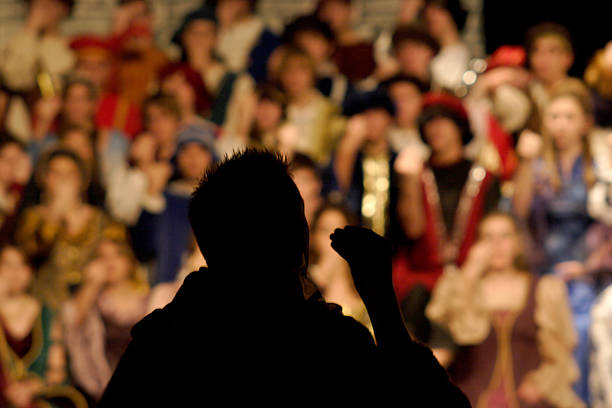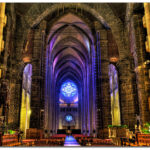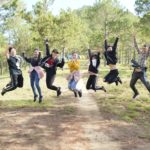Finding Hope in Small Towns — Todd Heifner
Lyrics crafted by my dear friend Kate Campbell came to mind this weekend, as is often the case when I’m on the road.
I’ve heard Kate speak often of how it sometimes takes years for her to write an entire song — to capture the entire essence of what she’s trying to say.
I can only admit that sometimes it takes me years before I fully understand or connect with a well-crafted lyrical poem. But her words stay with me across years and ultimately seem to find a place of significance on down the road.
Such was the case on a recent trip when the rental car I was driving broke down coming across the Blue Ridge Parkway and spilled me out in a very small, very unique little town in Appalachian southwest Virginia.
The first verse of one of Kate’s later songs begins with this:
“What makes a town they say?
Is it the people; is it the place?
Some things last, some things fade,
Some things you don’t notice ‘til they’re gone,
If you notice them at all.“
These are the first words of introduction to her song about the town of Ray. They took on new meaning for me as I spent two unexpected nights this weekend in the town of Floyd, Virginia.
Both towns seemingly simple in name, only found to be somewhat more complex as their various layers are peeled back.
Friday night found me stranded in Floyd, with no car and no way to get around, but quickly understanding that I needed none. I could visit the entire world right there at the Floyd Country Store for the Friday Night Jamboree.
It occurs every Friday night, beginning at 6:30 p.m., with an hour of bluegrass gospel music, followed at 7:30 by three hours of bluegrass and Appalachian mountain music — and the patrons of the store (and it would seem all of Floyd County) drawn to the dance floor.
At 7:30 sharp, as soon as the bow is rosined and pulled across the strings of the fiddle for the first long note, the entire store empties onto the dance floor to unwind the ache and the pain and the joy of a week’s work now done.
It seems one part catharsis, one part celebration.
On this particular Friday night, I surveyed the room and found among its 150 or so guests – about a third of them were as Scotch-Irish as any part of the McDonald lineage of my biological family.
They are a hard and worn people, blue-eyed and deeply creviced features on their faces, clearly blue-collar folk who all too often simply work hard, wear out and die young. About as Appalachian a bunch of folk as you would hope to ever find.
Another third of the crowd were white folk like me, seemingly southern folks of the church going variety. Many had likely come to hear the gospel music as much as the dance music, at least to my way of thinking.
This was the crowd of the Grand Ole Opry and the Hank Snow Gospel Hour that would follow once the after show at the Ernest Tubb Record Shop on lower Broad concluded each week, in the Nashville, Tennessee, of my youth.
“Many of them,” I thought to myself, “are likely hard-working patriotic folks, many of them Republicans and, in the current political milieu, very likely given to the politics of Donald Trump and the MAGA crowd.”
Or so I would’ve thought.
The final 50 or 60 folks in the room, it occurred to me after some observance, were the ones who had trickled in during the gospel hour. They seemed intrigued, if not somewhat enchanted, by what they were hearing — the simple, honest, guttural sounds of Appalachian folk crying out for their own eternal souls, and the eternal souls of all there gathered.
But what seemed to set this group apart most obviously was the middle eastern look in skin tone and facial features, as well as the hijabs and face coverings worn by many of the women in the crowd.
Clearly a group not native to these hills or to this music, but seemingly enjoying themselves at least as much as the Appalachian folk who were performing and interacting.
I watched in utter amazement and deep satisfaction as the 60-, 70- and 80-year-old Appalachian men sauntered over and invited ones from this group of Middle Eastern, likely Muslim folk, to join them in their dance.
And I watched as some of the Middle Eastern men reciprocated by asking Appalachian and white Southern women to join them on the dance floor, too, and take in this Friday night baptism ritual together.
As the evening wore on, during an intermission, the group of Middle Eastern descent was introduced as young entrepreneurs who were here in the United States for a five week stay to study entrepreneurism, since each of them is an entrepreneur in their home country.
They were invited guests of the U.S. State Department, traveling the next day to Washington, DC, and then this next week to Austin, Texas, and points west. They hailed from three countries – Egypt, Algeria and Tunisia.
To my complete shock, upon hearing this word of introduction of these guests among us, the entire crowd at the Friday Night Jamboree erupted into applause and took to their feet for a standing ovation.
“An Appalachian welcome like no other,” I thought. “An American welcome that they’d be proud of in New York and San Francisco, Plain Dealing and Chicago.”
Turning to the local woman taking up tickets, I asked, “How did they find out about this place and how’d they get here? Is this a typical Friday night?”
“Oh yes, hon,” came the reply. “While we don’t usually have State Department groups come in, last week many of our guests were randomly from Kenya, Australia, and Indonesia.“
I stood so amazed in the presence of all of this that I fired off a text to my brothers and father that said, “You won’t believe where I am tonight!”
“Where’s that?” one asked.
“I’m standing on the bank of a river I’d call HOPE,” I replied, “as much as any time I’ve been there in the last five and a half years. I’m witnessing this incredible interaction of cultures, from Appalachian mountain people, to southern whites, to people of color, to Middle Eastern folk, gathered around the fire of bluegrass and mountain music, where dance and celebration abounds!”
“It’s the most beautiful site and may well be the kingdom of God on earth,” I said. “A beloved community for sure. I’m in the town of Floyd.”
“What makes a town they say?
Is it the people; is it the place?
Some things last, some things fade,
Some things you don’t notice til they’re gone,
If you notice them at all.“
I would simply offer as a rejoinder to Kate‘s wonderfully posed questions in song:
“Yes, it is the people, Kate. And it is the place. This thing will last and never fade. I was lucky enough to notice this one at all … and I pray it will never be gone.”
God bless the town of Floyd. God bless the town of Ray.
Todd Heifner
Todd Heifner is Founder & Executive Director of Hope Manifest and resides in Birmingham, AL. www.hopemanifest.org
This article, entitled Road Trips, Car Trouble and Finding Hope in Small Towns first appeared on the website of Good Faith Media on October 6, 2022. www.goodfaithmedia.org







